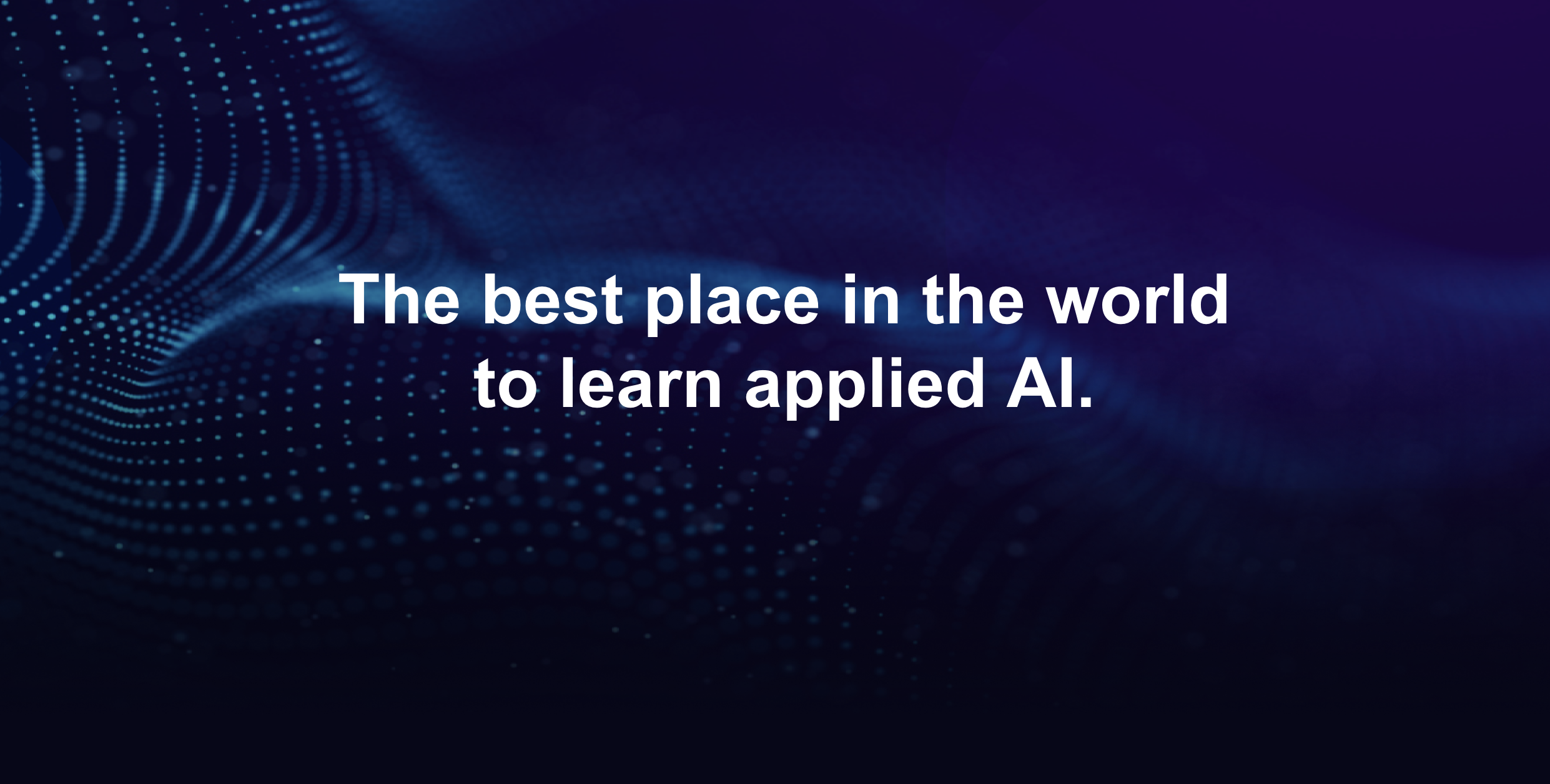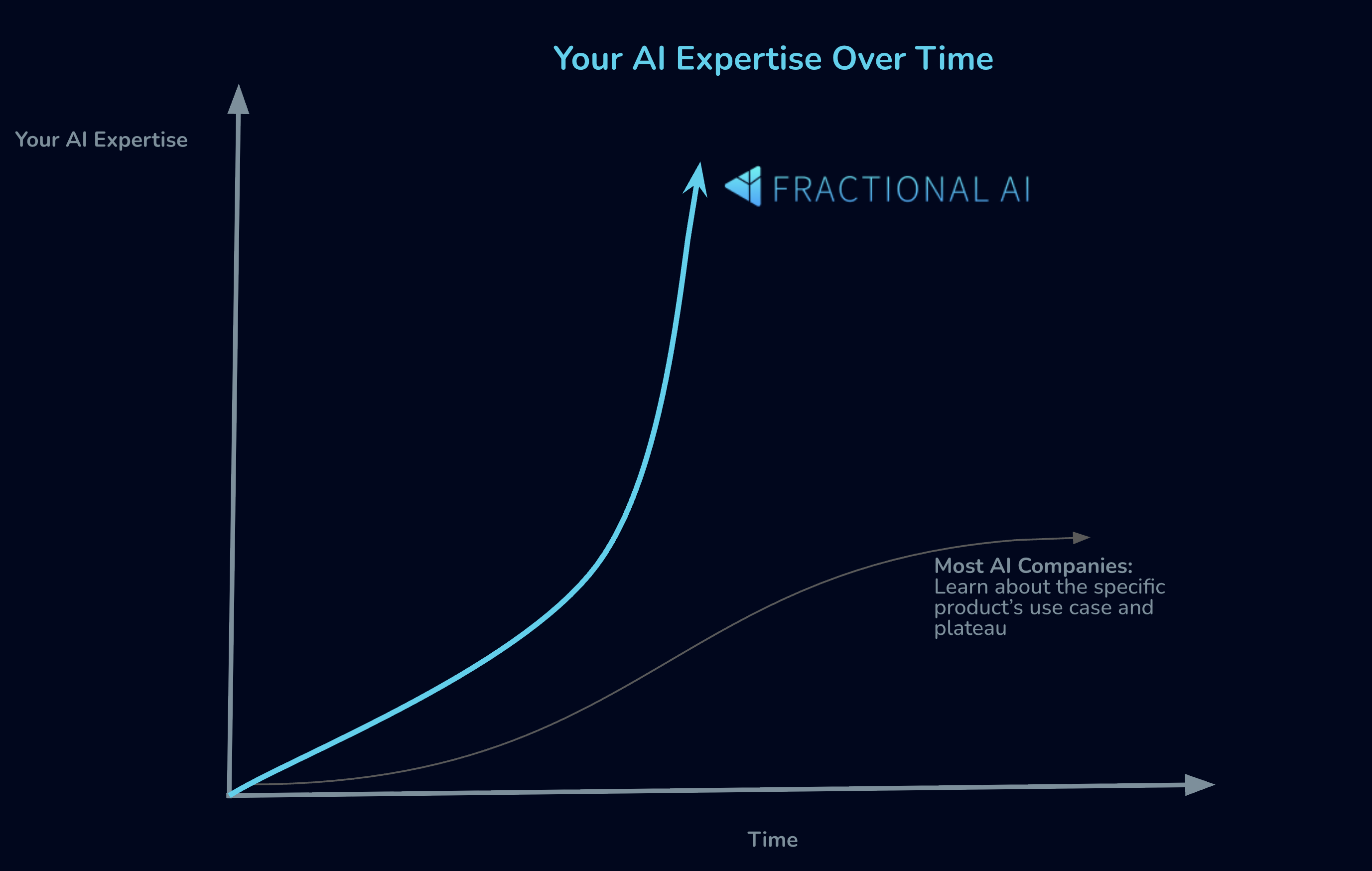© 2025 Fractional AI
Request a Consult

Your consultation request has been received
Oops! Something went wrong while submitting the form.

In all 67 interviews I did last month, I asked some version of: “...so why are you taking the call?” or “what interests you about Fractional AI?”
Everyone had their own motivators — mission, people, learning, stability, perks.
Not every company is a fit for every person. The best ones are clear about what they’re trying to be the best in the world at, and equally clear about what they’re not. They double down on what makes them distinctive rather than trying to please everyone.
There are a lot of reasons someone might be excited about Fractional AI:
All valid reasons. But not the singular reason.
Where we truly win: Fractional AI is the best place in the world to learn applied AI.
For candidates hungry to learn applied AI, I believe we’re the best company in the world. That comes down to three things:
Our business model forces you to stay on the cutting edge of applied AI. You can’t help it.
Top companies come to us with problems that were previously impossible to solve without gen AI, whether that means building a voice agent to automate research interviews, a safety agent for a rail logistics company, or an AI API integration builder for SaaS business.
While most PMs or engineers might build one AI product a year (if that), at Fractional AI you build one per quarter, tackling the toughest, most important AI challenges our customers face.
Take one engineer’s first 16 months:
That volume of real-world reps leads to unmatched pattern recognition, intuition, and a growing library of applied-AI techniques which are key to building systems that really work.
Our engineers defeated bias in AI research by developing a "debating agents" framework, improved a voice agent's instruction following with a novel adaptation of chain-of-thought, and so much more.
You develop the kind of instinct that only comes from doing, not reading or theorizing. You can watch people debate RAG vs finetuning on Twitter as much as you want but building actual products requires novel insights from many projects.
The real multiplier comes from taking the ceiling off of individual exposure and empowering everyone with the collective intelligence of everything Fractional AI has built and learned.
At most places, your AI expertise = the sum of your personal projects.
At Fractional AI, your AI expertise = the sum of all Fractional AI projects.

How we make that real:
Most of these rituals were conceived of by Fractional engineers, with edits and additions happening in real time.
In 18 months, we’ve gone from a 6-person WeWork closet (...I mean office) to:
When a business grows revenue 6x year-over-year, the company is different every quarter, if not every month. New functions, new products, new geographies – so much greenspace to build.
Just as important as what we are: what we’re not.
We’re not a chill job — we have high standards and strict client deadlines. We’re not a perks-first culture — there’s no onsite barista (though there’s a live contest for an espresso machine).
These are reasonable things for people to care about; they just aren’t what we care about.
Part of asking “Why Fractional AI?” is to better understand what candidates are looking for too, so we can help them opt in or opt out.
But if you want to learn applied AI — really learn it, by building, shipping, and growing alongside elite peers — I can think of no better place.
—
Special Thanks to Holly May - a mentor, leader, and friend who’s “Why Datavant” post inspired this rendition, and also convinced me to sign up for my first startup journey.
Annie Powers is the VP of People and Operations at Fractional AI. Before Fractional, she led the People Team at Datavant and was an Economic Consultant at Analysis Group.